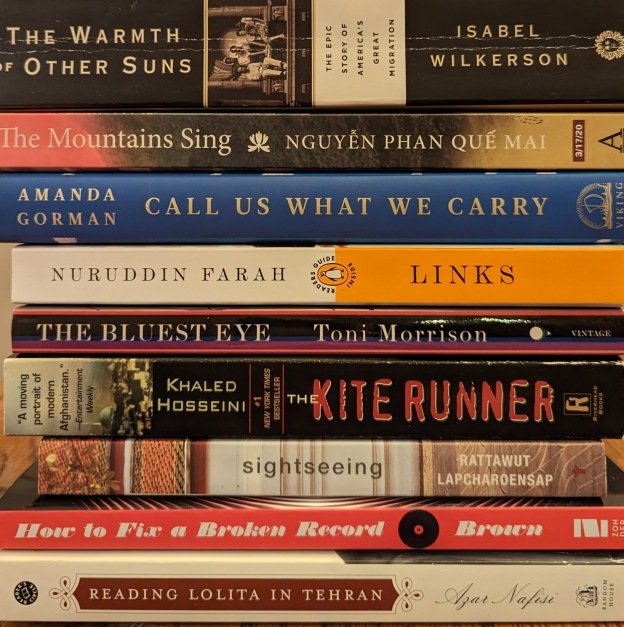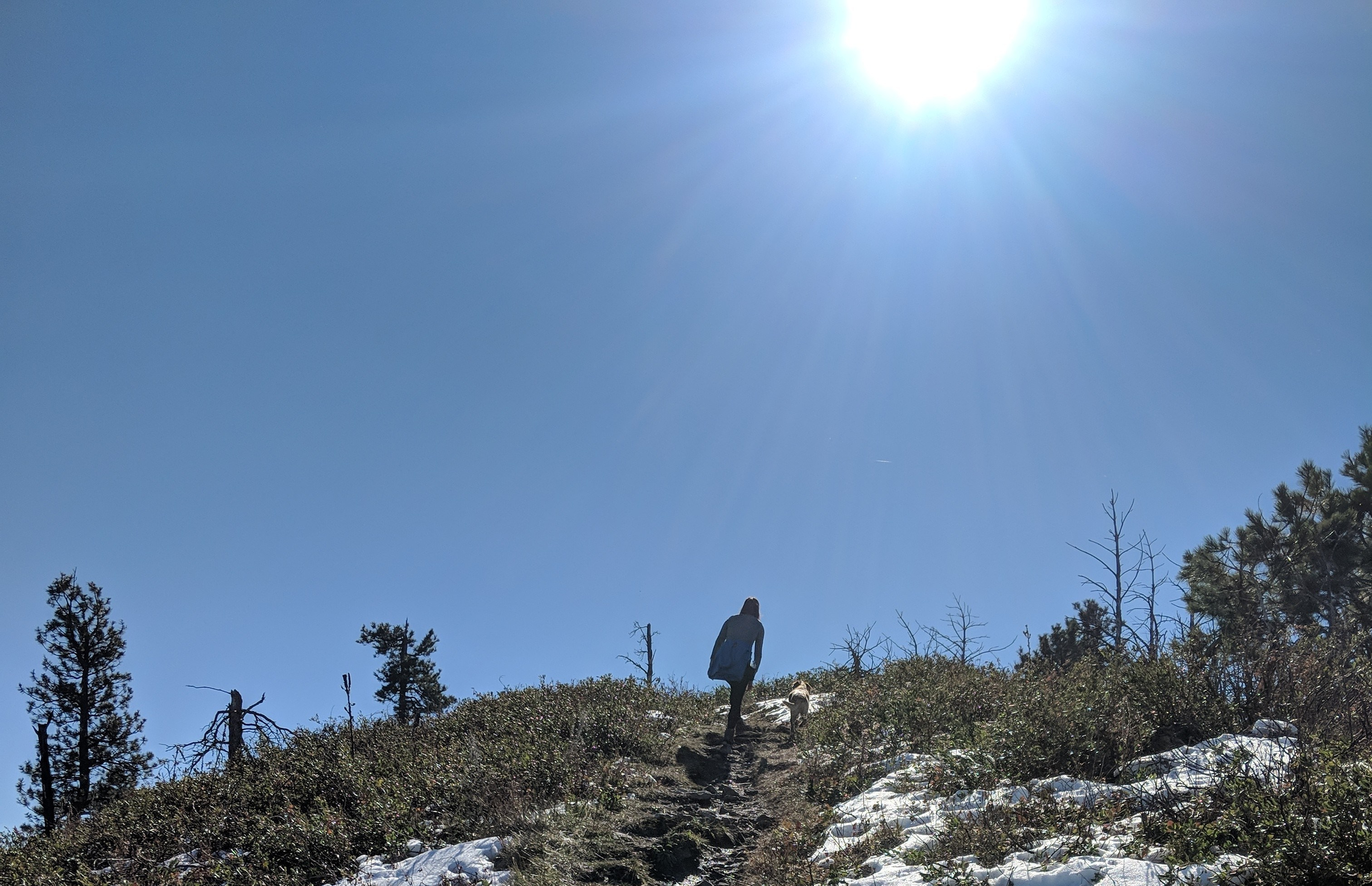A LONG time ago, I worked in a day care center and we took preschoolers on Bear Hunts pretty often. It started by sitting on the floor in a circle and making a marching sound by patting our legs in rhythm while chanting: “Going on a bear hunt,” pat, pat, pat, pat, “Gonna catch a big one,” pat, pat, pat, pat, “I’m not afraid!” pat, pat, pat, “Tall trees,” pat, pat, “Green grass,” pat, pat, pat. “Look at all the flowers!” After we appreciated the imaginary flowers there would always be 1) a river we needed to swim, 2) a mountain to climb, and 3) a field of tall grass we had to push apart to walk through. Then we started the chant again, “Going on a bear hunt…” We always found our way to a deep, dark cave, so dark it was like having our eyes shut (so we shut our eyes) and, as sensible bear hunters would, we went blindly into the cave, finding our way by sliding our hands along the walls. Then, instead of feeling the cold, hard, stone wall, we found ourselves in the dark touching a warm, soft, furry….BEAR! At that point we’d all shout “RUN!” and slap our legs furiously, eyes wide with excitement, racing through the tall grass, down the mountain, and across the river back to our cabin, where we’d slam the door, lock it and then peek through the window to find it was only a baby bear after all. We had dozens of bear hunts and it was always thrilling even though it turned out the same way every time. Except once.
It was not Kyla’s first bear hunt. At almost four years old, she was a veteran. She was the kind of kid who wore her blond, curly hair pixie short, hopped over mud puddles and climbed monkey bars as high as anyone else. What I am saying is that she could handle herself. So it was unexpected when, during one bear hunt, the rest of us had fled the cave and were racing for our lives toward the field of deep grass, we heard Kyla yelling, “Help! Help!” The rest of us in the circle stopped and looked at her. She was sitting between Philip and Brittany in our sunny classroom, her eyes closed, hands up feeling the air, with a look of terror on her pale, freckled face. Take this in; she couldn’t find her way out of the cave. “Kyla, honey, open your eyes!” I said. Her big blue eyes popped open, and she looked at us in surprise. Then she laughed in relief and we all laughed with her. The power of her imagination stunned me.
And yet, how different is this from what I (and maybe you) sometimes do? I get stuck in situations of my own imagining way too often. What if I lost my job? What if my son gets deployed to a conflict zone? What if I or someone I love gets really sick? These are worst-case scenarios, and when I start thinking too much about them I can find myself in a dark place. It can seem terrifying, when it isn’t even real. When I catch myself starting to figuratively drift into a dark scary cave, I try to remember to ask myself two questions: 1) In the history of all that I have experienced, how often have I actually faced what looks like a worst-case scenario? The answer to that is, almost never. 2) In those instances when I have faced a worst-case scenario, how many times did I survive? Answer, all of them.
If kept in perspective, worst-case scenario thinking can be a useful “what if” exercise for planning. My worries might prompt me to keep my resume fresh and to save up an emergency fund to cover basic expenses. Or try to live in a healthy way and encourage others to do so. Or make sure my son knows I love him and work very hard at praying for him daily then trusting God for the rest. This last one, the praying and then the trusting, is the hardest but it is critical in situations that are only partly (if at all) within my control, like my employment, or health, or the lives of other people. Worrying and replaying feared outcomes over and over doesn’t change what is going to happen, it is just groping around in circles in the dark. Memorizing Philippians 4:6-7 has helped me for the times when I am stuck in a cave: “Do not be anxious about anything, but in everything, by prayer and petition, with thanksgiving, present your requests to God. And the peace of God, which transcends all understanding, will guard your hearts and minds in Christ Jesus.” (NIV, emphasis mine.) Step one is praying, but step two, the gratitude, is where I seal the prayer by giving my trust and thanks for whatever comes. When I release my death grip on worry and truly trust God, it is like stepping into the light.
If a person practices worrying for a long time, it takes a long time of practicing trust to make it a habit. I am exasperated by how quickly and how often I find myself worried and anxious. But even when I let down my end of the deal, and forget to pray, forget to be thankful and trust, even when I find myself back in that cave, I am not there alone. When I am fearful and I call out “help!” I feel God is smiling at my side saying, “Child, open your eyes.”
My hope is that if you find yourself in the dark, feeling alone, afraid and overwhelmed, that you can let go of your fears, ask God for help and then let yourself trust God to handle what is ahead and to be with you, a powerful and loving presence in all things. Peace!






